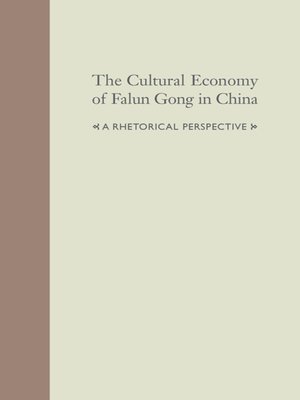
Sign up to save your library
With an OverDrive account, you can save your favorite libraries for at-a-glance information about availability. Find out more about OverDrive accounts.
Find this title in Libby, the library reading app by OverDrive.



Search for a digital library with this title
Title found at these libraries:
| Library Name | Distance |
|---|---|
| Loading... |
Emerging in China in the early 1990s, Falun Gong is viewed by its supporters as a folk movement promoting the benefits of good health and moral cultivation. To the Chinese establishment, however, it is a dissident religious cult threatening political orthodoxy and national stability. The author, a Chinese national once involved in implementing Chinese cultural policies, examines the evolving relationship between Falun Gong and Chinese authorities in a revealing case study of the powerful public discourse between a pervasive political ideology and an alternative agenda in contention for cultural dominance.
Posited as a cure for culturally bound illness with widespread symptoms, the Falun Gong movement's efficacy among the marginalized relies on its articulation of a struggle against government sanctioned exploitation in favor of idealistic moral aspirations. In countering such a position, the Chinese government alleges that the religious movement is based in superstition and pseudoscience. Aided by her insider perspective, the author deftly employs Western rhetorical methodology in a compelling critique of an Eastern rhetorical occurrence, highlighting how authority confronts challenge in postsocialist China.







